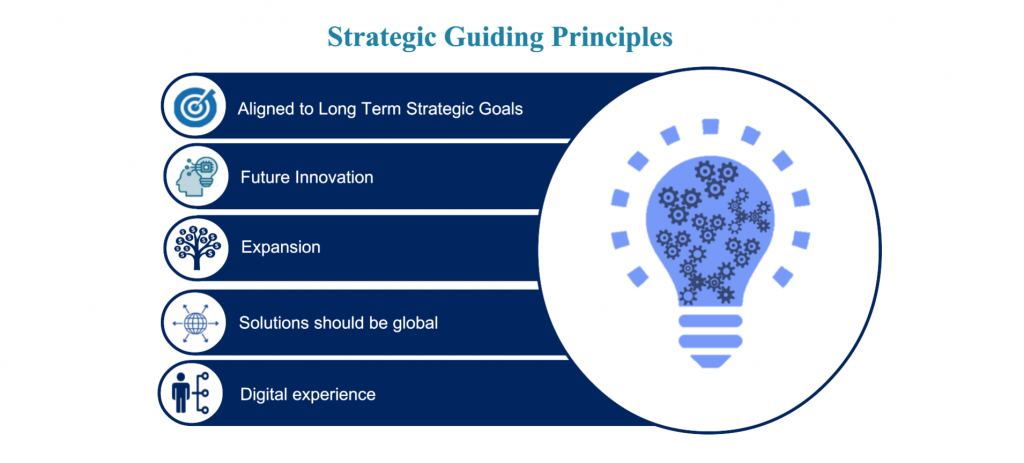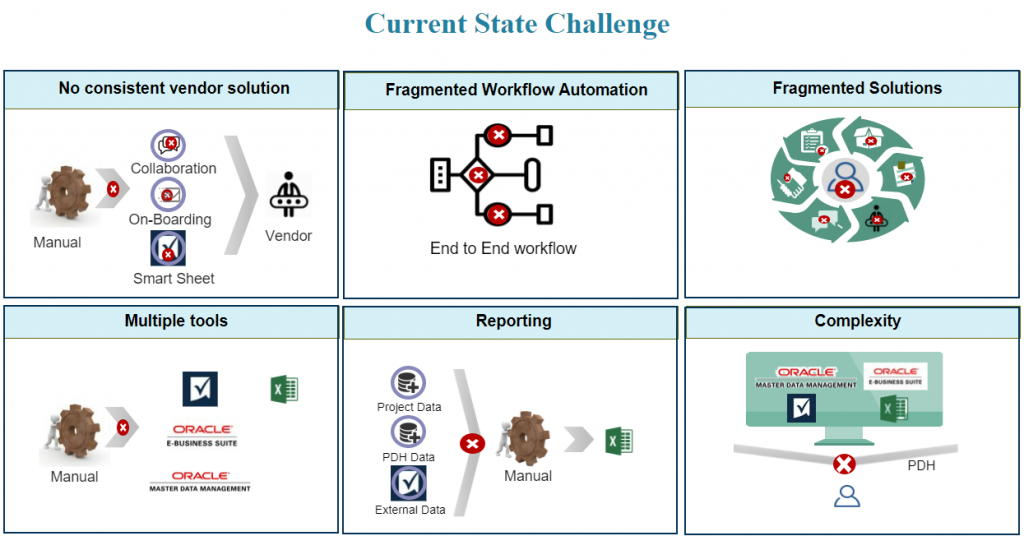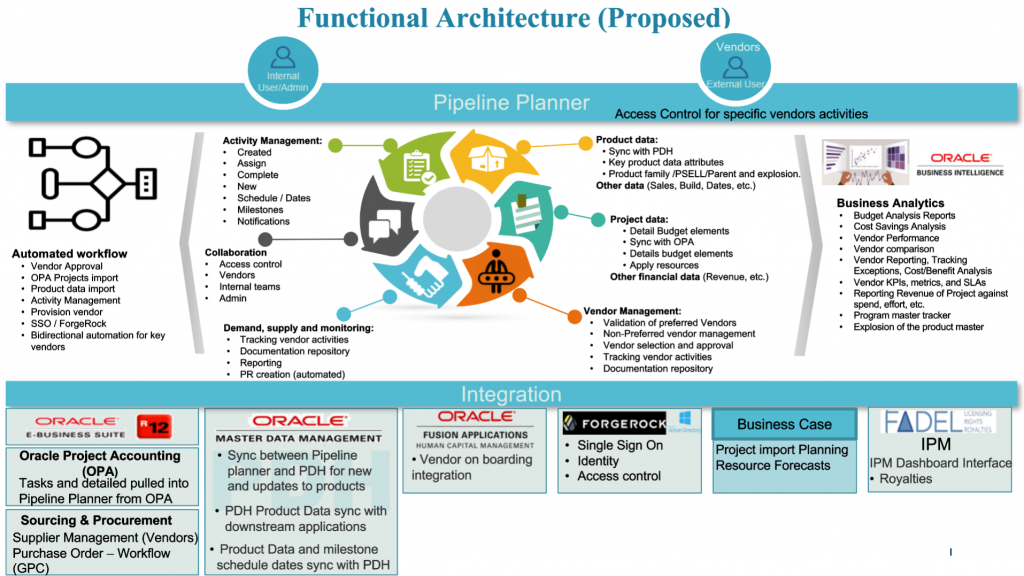The current challenges require an end-to-end process with a consolidated view of the project Pipeline.
- Lack of consistent vendor solutions, Onboarding/approving vendor, vendor view of planning and difficult to plan for or document savings
- Fragmented workflows due to multiple applications
- Current solutions via core platforms are fragmented without an integrated user experience
- Multiple tools, forms, processes are required to complete content creation and product development
- Reporting (in ad hoc) still not widely understood, accessible, or easy to access or use
- Complexity of tools makes training, remediation, and documentation difficult to manage
A Pipeline Planning tool is needed to support the lifespan of a Project and/or Products. The tool should leverage the following high-level capabilities:
- Accessed through a simple User Interface (UI) that is fully integrated with Core Platforms
- Allows for planning and assigning activities
- Comprehensive reporting capabilities
- Allows teams to manage internal and external (vendor) teams
- Ability to consolidate all the many offline tools and forms in one place
- Ability for a centralized workflow and data with one single entry point
- Ability to interface and sync data with multiple resources
Apex Proposed
Oracle’s EBS (Oracle e-Business Suite) is an extensive software product that provides a broad range of features for handling core business processing needs. However, there are times when a business may need to expand features beyond what EBS provides. These extensions could result from a need to adapt to an industry shift, a tactical opportunity, or even a business-wide streamlining request.
This can vary from minor adjustments to major overhauls. Oracle Application Express (APEX) will provide a solution in any of these scenarios. Oracle APEX allows rapid development of database applications utilizing the Oracle database.
There are numerous reasons why you would use APEX (even without EBS). APEX, however, provides a quick and highly productive way to extend your Oracle E-Business Suite environment with almost no impact on your current implementation.
COTS (commercial off the shelf) vs Extend Core Platforms Solution
COTS
- Dependency required to build the integrations as part of going live
- Need to load master data (Vendors, PDH Data etc.)
Extend Core Platforms Solution
- Ability to deploy vendor management
- Ability to rollout activity management
- Ability to leverage existing data sets
- Integration with contracts and procurement process
APEX capabilities harnessed
APEX is used here to deliver new functionality that made use of the Oracle EBS DB and EBS API. It helps stream lengthy EBS processes involving multiple screens into a single APEX page.
- Real time access to EBS data
- Additional reporting and analysis
- Simple and customized export of data
- Delivers new business functionality
- Custom ordering system
- Searchable personnel directory
- Custom data collection
- Personalization of complex EBS workflows
Once the supported environment is in place; APEX development is similar to non-EBS projects and provides huge benefits in terms of a clean UI, cost effectiveness and rapid application development.
Why APEX?
- Rapid Application Development
- Avoid customizations
- No impact on patching and upgrading
- Fully supported by Oracle
Business Value
Strategic:
- Revenue Models are changing and will continue to change over time. (eg Subscriptions, Digital Versions)
Customer Experience:
Operational Excellence:
- Efficient planning across product lifespan
- Simplified Integration with core platforms
- Simplicity of use (UI)
Profitable Growth :
- Resource savings and leveraging resources for high value – internal and vendor.
Technical Compliance Excellence:
- Data integrity
- Cloud capabilities with low operational maintenance
- Increased technology innovations
- Increased automation, less risk for process failures




